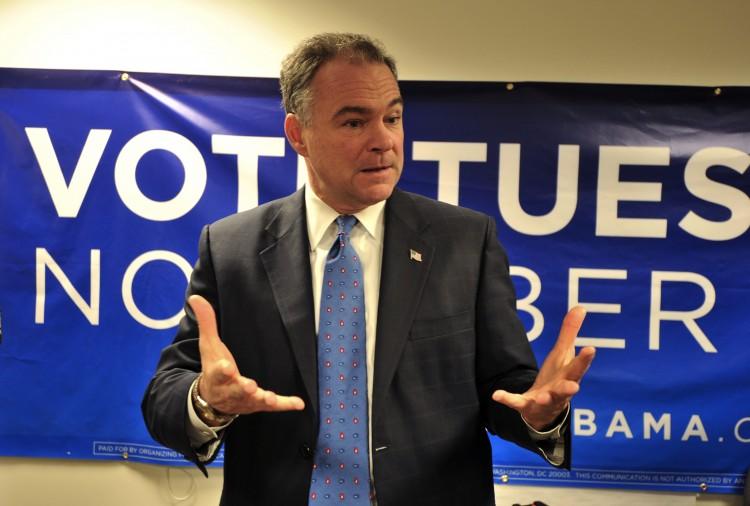Nation Watches the Virginia Senate Race
Control of the U.S. Senate may hinge on a handful of close races. One of these closely watched contests is the race in Virginia to replace Democrat Jim Webb, who is not running for re-election.

Former Sen. and Gov. George Allen (R-Va.) speaks at a Republican rally. T.J. Kirkpatrick/Getty Images
|Updated:







